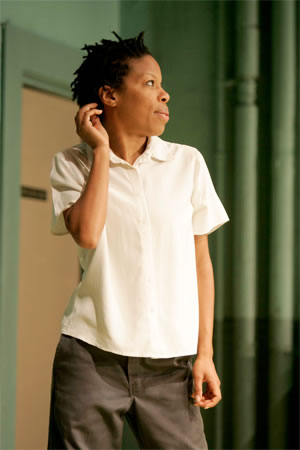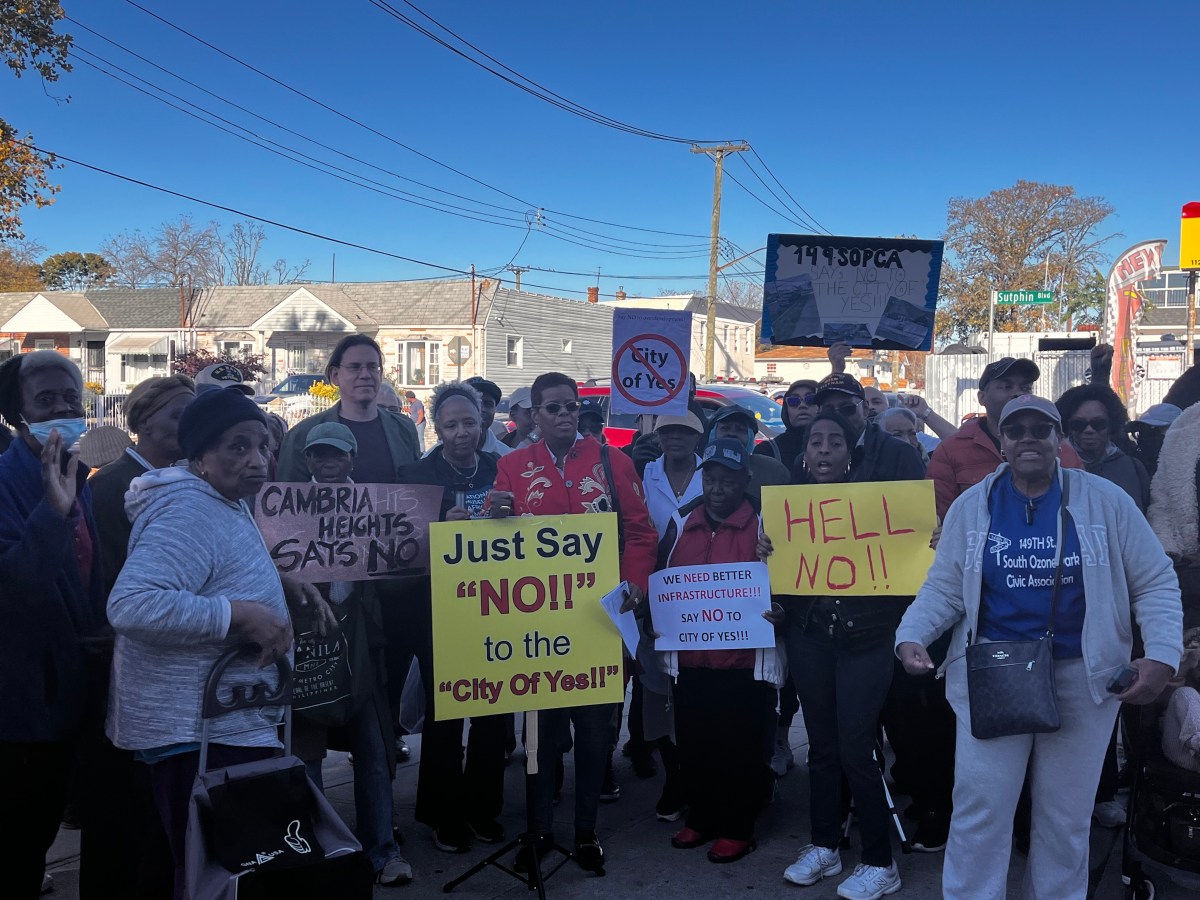The Villager recently saw Nilaja Sun’s outstanding solo show “No Child…” — which looks at the No Child Left Behind act from the perspective of over a dozen characters within the New York City public school system. Following the show, we sat down with two people who told us what they thought, based on their own unique educational backgrounds.
Latima Stephens: I was born in Queens and lived in Brooklyn for a year, but my entire life I have lived in the Bronx. So I know about the public school system in the Bronx — and that’s one of the reasons my mom put me in Catholic school. She didn’t like the idea of New York City cops being at the schools. The metal detectors just didn’t sit well with her, so that’s why my brothers and I went to Catholic school. And I didn’t go back to the public school system until I moved to Virginia midway through my 11th grade year.
Marc Charbonneau: In Canada, we have public schools and we have private schools. But it seems like the reason people send their kids to private school is because the curriculum is a little harder — but I would say that there is not really much of a distinction between public and private schools. I feel that in Canada, things are much more even in terms of the school systems. Then, if you want to pay a little more, you can send your kids to private school. But generally, people don’t send their kids to private schools because they don’t want their kids to go through metal detectors everyday — because we don’t have metal detectors in Canada.
The Villager: Marc, when you were growing up in Canada and you were in the public school system, how was American education regarded?
MC: I think people see the United States as a two-tier system. Everyone knows the Ivy League schools are great and the private schools that are awesome; and then people may have a general concept of what public school is all about in the United States…but I would say that people are not aware, necessarily, of the problems faced by public versus private education in the states. They are more aware of the good schools like Harvard; but if you go down to the high school level, they don’t really know.
LS: It doesn’t surprise me. When you turn on your TV, when this whole No Child left behind thing first started, you would think wow, that’s amazing, you know, you don’t have to worry about getting left behind.
MC: At the time, in Canada, we didn’t understand the issues. But I think outside of Canada, people saw No Child Left Behind as a good thing, because it was promoted that way. But based on the play, it sounds like it’s more about statistics and test results.
LS: Being from New York — I don’t have kids now — but if I had kids, I definitely would not send them to a public school. I would definitely send them to a private or catholic school. As for tests and score standards, I took a couple of them [Regents]. I was passing them, but I knew I wouldn’t pass my Chemistry Regents…and I knew for sure I wasn’t going to pass the Spanish Regents, and I was not going to get left back. I mean, its not just like you take all of your Regents in June. There are some of them you take in January. So everything that you learn starting in September is geared towards the regents you have to take in January, and then when you get back after your Christmas break and you’re done your January Regents. you start on the June regents.
So you can’t ever learn anything fun like, like what happened in this show, where a theater/artist teacher comes in — because you have to learn everything to pass the Regents. And the teachers get their promotions based on the percentage of students that pass. When your students are failing them, they are going to fire you. So these teachers can’t focus on, like Nilaja said, the love of actually teaching and wanting to make a difference. You have to learn based on these exams and tests that the students have to pass. It’s pressure on the teacher, pressure on the principal, pressure on the school board and it just spirals from there.
V: Let’s talk about the play itself. The performer, what the structure was, how much was in there.
LS: She was amazing. This was the first time I have seen a solo performer. It was awesome.
MC: Yeah. Same here. Just her ability to make transitions, between, I don’t know, 10 or 15 different characters…
LS: And she transitioned perfectly. I thought it would be weird seeing how she transitioned from one character to the next, but even at the end when she was doing the play and she was transforming into the different characters…it was phenomenal.
MC: She had a ton of energy.
LS: From start to finish.
MC: It was also very interesting to have a historical perspective. Being from outside of the United States, it makes you wonder how things have changed in the city.
LS: Two things really stand out in my mind: One was in the very beginning, when she, as the janitor character, was telling everyone who was critical of the public school system to hush — because you don’t understand unless you have actually been in the school system. That is true. I feel like people who are on the outside hear all the greatness like the No Child Left Behind Act and, ‘Oh, it will be amazing.’ You don’t know about it unless you are actually in the school system. So don’t even think about judging. The second thing that stands out was when she was saying that there is a short ride from one of the richest communities to the absolute poorest community in New York City. It’s only 18 minutes between the two.
V: Is there anything else that stands out about the performer or performance?
LS: I was wondering if she grew up in the Bronx, because she hit every point perfectly. Being from the Bronx, and growing up in the South Bronx, everything she hit on was something that I could totally see happening.
MC: Yes. The play was very serious about how things are working with the school systems.
LS: Yes, where are our tax dollars actually going!
MC: Spending money on like security guards, metal detectors, and it is not really going to the kids. How the hell did society get so crazy?
LS: Poor kids.
MC: Yeah, the poor kids. They have to go through that stuff every day. She was able to discuss a really difficult subject in a funny, but serious, manner.




































